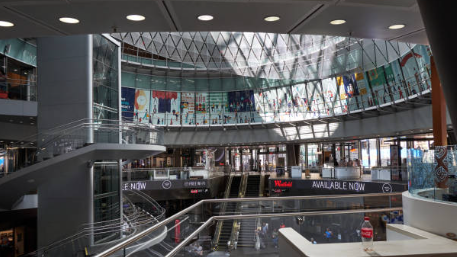Mall Giant Westfield has announced its plans to end its lease and cease all operations at the Fulton Center in Lower Manhattan, blaming crime and quality of life concerns as their reasons for terminating the lease.
As a response to the retail management company’s decision, the MTA is suing them for breaking their lease earlier than their contract allowed.
Westfield signed a 20-year lease in May of 2014, meaning they still have 10 years left to be in service at the Fulton Center.
However, according to the company, the MTA is not maintaining public safety at the transit hub, and the mall giant has told the MTA that multiple tenants have left the shopping center, reporting break-ins, theft, vandalism, harassment, and assault.
“The rate of subtenant vacancies is at an all-time high,” Westfield wrote in a legal filing. “Few businesses want to open and operate a store where their employees and customers regularly would experience theft, property damage, bodily harm, or threats.”
For many workers and subway riders, the main issue is the homeless population that often stays in the Fulton Center.
One worker reported that she had to help a woman hide in her store because she was being followed and harassed, and some subway riders claim they avoid taking the train altogether because of it.
“The real problem is homelessness here, you can just look out the window and see people roaming around, it probably lessened because it’s getting nicer outside but during the winter months, it’s a lot,” said Nia Moore, who works at Birch Coffee in Westfield.
These developments come as the National Guard and state police have been deployed all over the subway system so that riders could feel safer, as there has been a streak of transit crimes recently.
While grand larceny is down in the 1st precinct, both retail theft and petit larceny are up, with retail theft spiking 4% across the city this past year.
These crime rates have continuously been attributed to the growing homeless and migrant population in NYC, with many believing that the city’s lack of housing and underfunded city programs are the real culprits of these ongoing issues.












